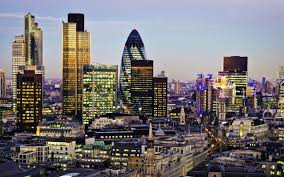Publisher: Maaal International Media Company
License: 465734
“Bubble” terrifying word in housing.. Are we on the verge of a new global financial crisis?!
New home prices in China witnessed their sharpest decline in 7 years last October as real estate sector problems persisted, at a time when the US housing market witnessed a sharp decline, amid bleak expectations that house prices would drop by more than 20%. Analysts predicted a decline in house prices in Britain to more than 30%, and this trend raised fears of a new financial crisis.
Rescue plan:
A recent report in the “South China Morning” newspaper indicates that the real estate sector has suffered from a debt crisis and a slowdown in the economy. The real estate market is an engine of growth in China, against the backdrop of rising living standards and rising demand in a country where home ownership is seen as a prerequisite for marriage. However, the uncertainties associated with Covid-19 led to a decline in demand and pressure on household income, and affected buyers, at a time when many major real estate groups in China are suffering from financial difficulties.
اقرأ المزيد
An analysis of figures released by the National Bureau of Statistics in Beijing showed that new home prices contracted 1.6% year on year, the sharpest drop since August 2015. Property prices fell in 58 cities, according to the National Bureau of Statistics, which compiles average price In 70 cities across China.
The figures come after the Chinese banking system revealed urgent measures to rescue the ailing real estate sector last week. This included credit support for indebted housing developers, financial support to ensure completion and handover of projects for homeowners, and assistance with deferred payment loans for buyers.
Analysts have raised concerns that the crisis may so far extend to the country’s financial sector at a time when Beijing’s strict policy to prevent the spread of Covid-19 was curbing growth.
Housing bubble:
For its part, the professional services company “KPMG” warned of the bursting of the epidemic housing bubble in the United States pointing to the decline in housing prices by 15%, considering it a “conservative” level.
It didn’t take long for professionals in 2020 to realize that expanded work-from-home policies mean they can buy property just about anywhere. There has been a clamor in the vacation markets, the suburbs are becoming increasingly demanding, and even large cities that have been losing population, such as New York and San Francisco, are becoming more populous as the segregation of roommates has led to a spillover effect from the rental market into the housing market. The pandemic housing boom coincided with a staggering 42% rise in US house prices between March 2020 and June 2022. At least 60% of that, according to estimates by the Federal Reserve Bank of San Francisco, can be attributed to rising demand for The “space” that happened during the pandemic
Of course, not only did this spurt of demand fade away – there was a significant change, as mortgage purchase orders fell by 41%. And there are actually fewer purchase apps now than there were at the height of the 2008 crash.
In the same context, Fortune magazine analysts say that when they coined the term housing boom, they did so realizing that if the boom ended in a depression, it would have to be renamed the housing epidemic bubble, noting that they set the criteria for this: any market that sees a decline of more than 10% from the peak gets the pandemic housing bubble sticker. If the company’s career forecasts are correct, the entire country will get our “bubble” label, according to the Fortune report.
In the same context, a prominent economist said in a note to clients this week, according to the New York Post, that the housing market in the United States is likely to bottom out after months of low buyer demand and lower housing prices.
Declining confidence:
According to a monthly National Association of Home Builders survey, homebuilder confidence fell for the 11th consecutive month in November and fell to its lowest level since June 2012, excluding the COVID-19 pandemic.
Sentiment in the housing sector fell quickly during the massive rally in mortgage rates this year – which topped 7% for a 30-year fixed-rate loan earlier this month before falling to 6.61% last week.
Ian Shepherdson, chief economist at Pantheon Macroeconomics, argued that mortgage rates appear to have stabilized – a welcome sign for homebuilders and buyers alike. The housing market has seen a significant slowdown in recent months as sharp interest rate increases by the Federal Reserve have caused mortgage rates to rise. Exorbitant monthly mortgage payments add to the financial pressures of homebuyers who have already faced rising prices and high inflation for decades.
Jerry Konter, president of the National Association of Home Builders, said high interest rates had significantly dampened demand for new homes as buyer traffic became increasingly scarce.
Bleak Outlook
Similarly, researchers at the Dallas Federal Reserve said in a recent report that mortgage rates have “bolstered the prospects for a sharp correction in house prices.” The researchers pointed out that prices may drop by 20%
Deflation Risk:
In the same direction, expectations indicate that the UK real estate market may be on the verge of a major contraction, as some market observers warned of a price collapse of up to 30%, and new homebuyer inquiries fell in October to their lowest level since the financial crash for the year 2008.
Related








